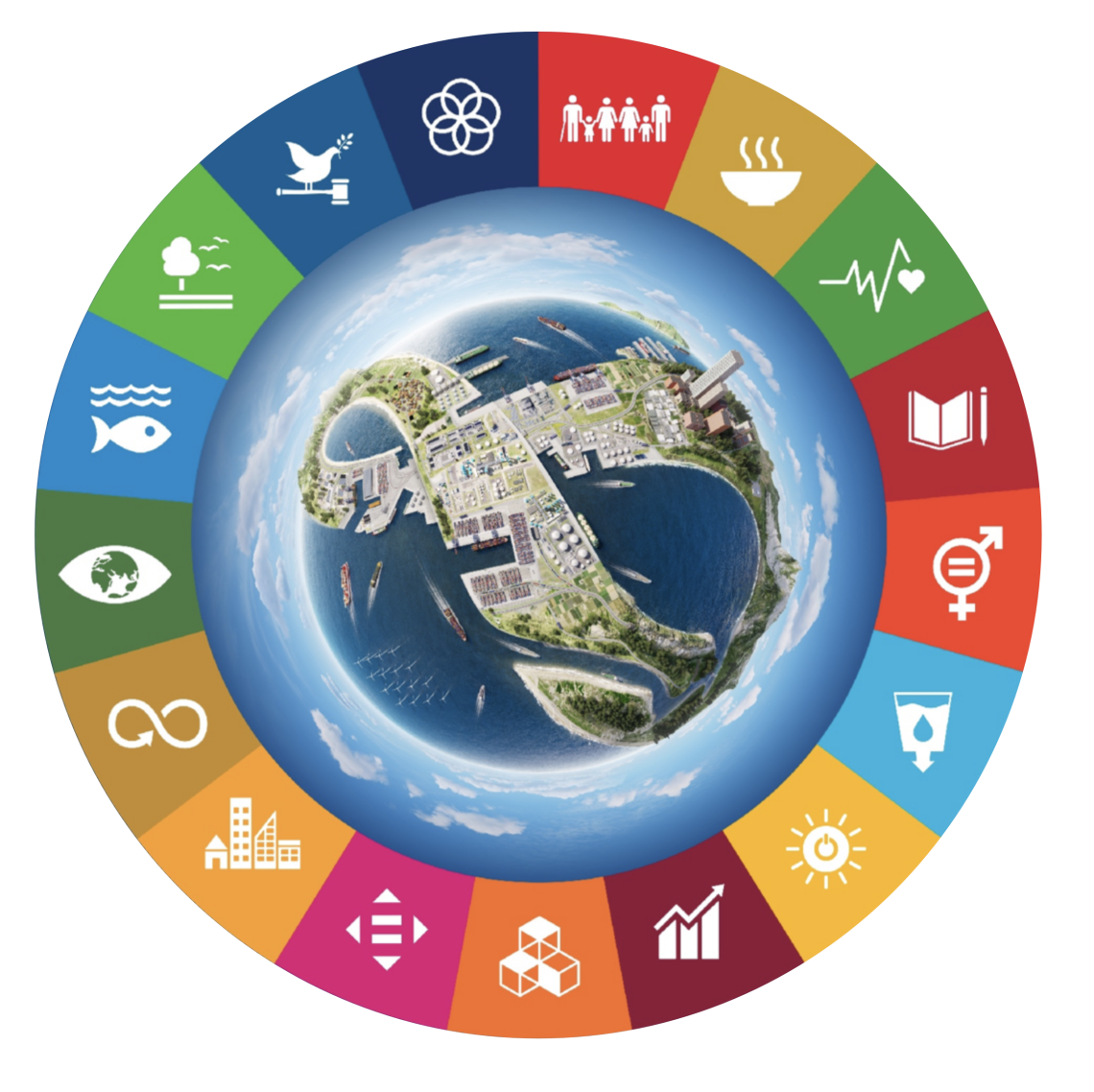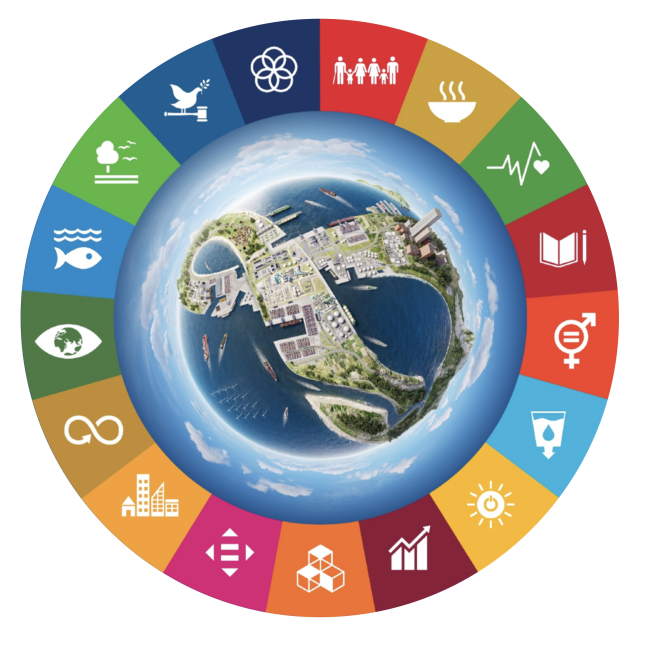Preface
Our world is facing huge challenges that affect everything and everybody. Take, for instance, the energy transition, raw materials transition, climate change, digitalisation, socio-economic inequality and geopolitical developments. All this has a significant impact on our society and consequently on the port and the Port Industrial Complex too. A huge, joint effort is needed to forge a sustainable future. It's up to all of us to take responsibility and contribute to that.
Sustainable Development Goals as the basis for our actions
The Port of Rotterdam Authority is taking responsibility by committing to creating a sustainable Port and Port Industrial Complex. We base our actions on the Sustainable Development Goals (SDGs) of the United Nations. The SDGs are 17 goals intended to make the world a better place by 2030. The goals were agreed by all United Nations member countries, including the Netherlands. Industry is expected to play a major role in the achievement of these goals.

'It’s a complex challenge that we, as a port, are facing. We can only do it if we do it together. We can only do it if we join forces.'
Boudewijn Siemons,
CEO and COO a.i. of
the Port of Rotterdam Authority
How do we take responsibility?
The Port of Rotterdam Authority is ‘landlord’ for many companies and welcomes numerous companies that do business with or through the port of Rotterdam. We are an important spider in the web when it comes to ensuring that we and these companies build towards a sustainable future port. We play various roles in this. The Port of Rotterdam Authority is a driving force, an investor, a sponsor, connector and an accelerator when it comes to sustainable business operations in the Rotterdam port. We make sure that the Port Industrial Complex is a place where companies are able to make the transition to a sustainable future – in the broadest sense of the word.
Our goal is to be, and to remain, the most sustainable port in the world. We have our work cut out for us.
Energy transition
The energy transition alone requires a large-scale, joint effort. Greenhouse gas emissions must be reduced by at least 55% by 2030, compared to those of 1990. The port of Rotterdam and Port Industrial Complex are also working towards meeting the goal of climate neutral operating by 2050.
Raw material transition
Add to that the raw materials transition... At national level, the goal has been set of realising a 100% circular economy for the raw materials transition by 2050. That's badly needed, because (1) considerable damage is often done to the environment in the extraction of virgin raw materials, (2) raw materials are finite and (3) materials currently often end up in the environment or the atmosphere, which causes damage. Take, for example, the plastic that ends up in the oceans or is incinerated. So we can commit fully to the energy transition, but if we pay too little attention to the raw materials transition, the climate goals will still be compromised. So the raw materials transition has to be high on the agenda, in addition to the energy transition.
Preface
Our world is facing huge challenges that affect everything and everybody. Take, for instance, the energy transition, raw materials transition, climate change, digitalisation, socio-economic inequality and geopolitical developments. All this has a significant impact on our society and consequently on the port and the Port Industrial Complex too. A huge, joint effort is needed to forge a sustainable future. It's up to all of us to take responsibility and contribute to that.
Sustainable Development Goals as the basis for our actions
The Port of Rotterdam Authority is taking responsibility by committing to creating a sustainable Port and Port Industrial Complex. We base our actions on the Sustainable Development Goals (SDGs) of the United Nations. The SDGs are 17 goals intended to make the world a better place by 2030. The goals were agreed by all United Nations member countries, including the Netherlands. Industry is expected to play a major role in the achievement of these goals.

'It’s a complex challenge that we, as a port, are facing. We can only do it if we do it together. We can only do it if we join forces.'
Boudewijn Siemons,
CEO and COO a.i. of
the Port of Rotterdam Authority
How do we take responsibility?
The Port of Rotterdam Authority is ‘landlord’ for many companies and welcomes numerous companies that do business with or through the port of Rotterdam. We are an important spider in the web when it comes to ensuring that we and these companies build towards a sustainable future port. We play various roles in this. The Port of Rotterdam Authority is a driving force, an investor, a sponsor, connector and an accelerator when it comes to sustainable business operations in the Rotterdam port. We make sure that the Port Industrial Complex is a place where companies are able to make the transition to a sustainable future – in the broadest sense of the word.
Our goal is to be, and to remain, the most sustainable port in the world. We have our work cut out for us.
Energy transition
The energy transition alone requires a large-scale, joint effort. Greenhouse gas emissions must be reduced by at least 55% by 2030, compared to those of 1990. The port of Rotterdam and Port Industrial Complex are also working towards meeting the goal of climate neutral operating by 2050.
Raw material transition
Add to that the raw materials transition... At national level, the goal has been set of realising a 100% circular economy for the raw materials transition by 2050. That's badly needed, because (1) considerable damage is often done to the environment in the extraction of virgin raw materials, (2) raw materials are finite and (3) materials currently often end up in the environment or the atmosphere, which causes damage. Take, for example, the plastic that ends up in the oceans or is incinerated. So we can commit fully to the energy transition, but if we pay too little attention to the raw materials transition, the climate goals will still be compromised. So the raw materials transition has to be high on the agenda, in addition to the energy transition.